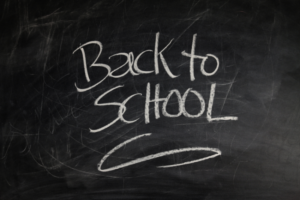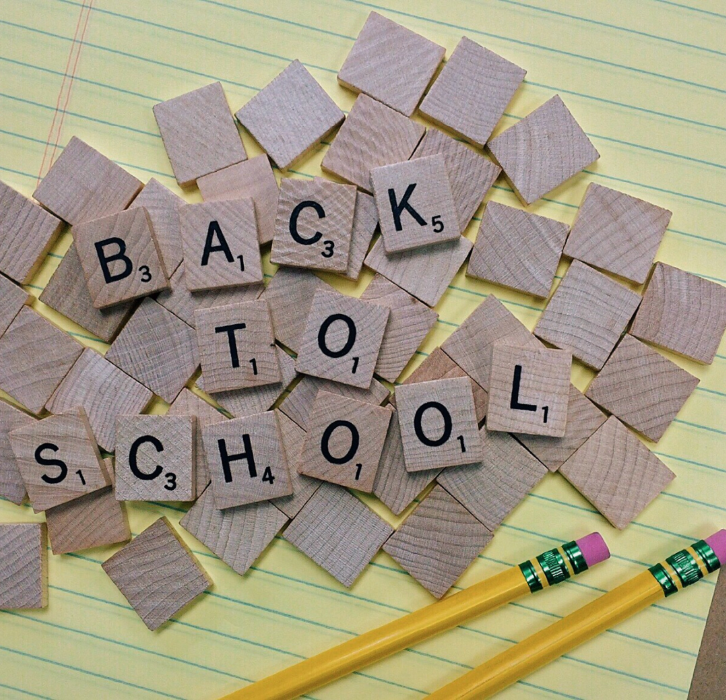Dear educator,
Thank you so much for teaching my child.
I appreciate this opportunity to share with you some insight into the challenges that my child has been having in your classroom and as a student in your school.
I was one of you.
A few short years ago, I was in your shoes. I worked as a classroom teacher for over 20 years, so I know you better than you might think. As a veteran educator, I knew how to use rapport and positive behavior supports to keep my students engaged and on task. I could develop a sticker chart and incentive program like the best of them, and I knew the school code of conduct and all the various levels of infraction like the back of my hand – all the way up to school suspension, when warranted. As I gained experience and familiarity with teaching at various grade levels, I developed the ability to stop an unruly 2nd grader or a 6’2” high school senior with a raised eyebrow and as little time off task as possible.
“That’s a warning,” I would say calmly but firmly, knowing that every child in the class was watching me and holding their breath to see if the student would oblige me to move the infraction up to level 2, “Last One Out” or level 3 “Detention.”
When kids did not follow my posted classroom rules, I…
- wrote their names on my whiteboard (or chalkboard, back in the early years).
- moved their clips up and down on colored charts that everyone in the class could see.
- called their parents.
- used my authority to control, reward, and consequence my students into compliance.
And, worst case scenario, I wasn’t afraid to call a resource officer to my room. For the most part, I had a well-behaved class. Things were smooth and efficient. I was a pro.
Or so I thought.
When it comes to teaching kids with trauma and high ACE scores, I was a failure.
Now I shudder when I think back on the mistakes that I made and the damage I probably did to many of the students in  my classes by using this behaviorist approach to discipline and classroom control. You see, it wasn’t until I decided to adopt a child and brought a 10-year-old with Complex Developmental Trauma into my home that I found out the truth, a truth that in this and two future posts, I’ll share.
my classes by using this behaviorist approach to discipline and classroom control. You see, it wasn’t until I decided to adopt a child and brought a 10-year-old with Complex Developmental Trauma into my home that I found out the truth, a truth that in this and two future posts, I’ll share.
Most teachers, including me before I adopted, know absolutely nothing about trauma and how it affects the way children learn and behave. Principals, counselors, and other school administrators who know about trauma are also rare. The little bit that we may already know as seasoned educators is often outdated, as new brain research has changed the way we look at the stress response and how much our kids can or cannot control their choices when it comes to their behavior.
We know now, for example, that approximately 40% (or more) of the children in every classroom have been affected by ACES – Adverse Childhood Experiences such as abuse, neglect, and traumatizing experiences that have changed the way their brains and bodies process and respond to information and stimuli.
One of Those Parents
When I come to meetings now, you may have noticed that I am often reluctant to listen to you and your well-intentioned advice on how to get my child to behave and comply with the rules of your school and your classroom.
You may also not understand why my child is absent so often. Maybe you think I just need to do something a little more forceful to get him out of bed and on the bus. Or you think that he is just being lazy or defiant and needs me to be firm, set stronger limits, or implement some consequences for his inability to be “normal” and just come to school. You think this will solve the problem. Just punish him, and he will learn to behave.
Sometimes I privately laugh at all your suggestions. You think they will be be a quick fix to a developmental brain change in my child. Other times, when I’m tired from parenting a severely traumatized child and feeling especially frustrated, I will get defensive and try to explain how utterly useless traditional parenting and classroom management advice is. I know that the majority of your best ideas on shaping behavior simply will not work for a child with trauma like mine.
This might make you think that I’m being unreasonable. Or that I’m just one of “those” parents.
Maybe I am.
Nevertheless, I would like to attempt to help you understand why I often don’t trust your advice about my child, so that you don’t take it personally. It’s not because I don’t believe you are professionals who care about kids and know what you are doing. It’s because I know from experience that I, too, was a professional who cared deeply about kids and I too thought I knew what I was doing…but I didn’t know enough.
And on some subjects, like Complex Developmental Trauma, I knew nothing at all.
What I didn’t know caused some of my students to suffer and give up – on themselves, and on the systems that were supposed to support them. As Maya Angelou so wisely said, “When we know better, we do better.” So in my next two letters, I will share with you what I now know.



